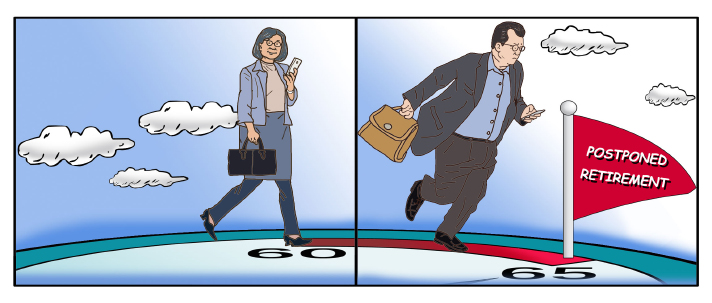| Lifestyle |
| Why does China postpone the retirement age? | |
|
|
 LI SHIGONG
China's Ministry of Human Resources and Social Security has recently revealed it is working with the relevant authorities on ways to reform the nation's existing retirement system, once again broaching a subject which in the past has already stirred up much public debate. The average life expectancy of Chinese people in 2019 reached 77.3, and that for those urban residents surpassed the age of 80. The official retirement age for males today sits at 60, 55 for female cadres and 50 for regular female employees. Consequently, postponing the current retirement age is deemed an effective way to stopple the labor gap and put to their maximum use the necessary qualified human resources. News of the possible change was met with mixed feelings, many condemning the impending new course of action as they have already drafted their plans for a relaxing post-retirement life. Lu Quan (news.163.com): Delaying retirement is an inevitable result of China's changing population structure. The delaying of retirement will exert an immediate impact on every single retiree, so the system must be rewired in a considerate and rational way. On the one hand, there should be a unified national program to ensure equality across the country; on the other hand, there must be some flexibility in terms of its implementation, so that the public can feel reassured and fulfilled to the largest possible extent. Though seemingly mandatory, the principle of delayed retirement in practice could contain certain policy tools to inspire people's enthusiasm for their work. For instance, the longer one pays monthly pension contributions, the higher his or her pension eventually will be. Feng Jin (finance.ifeng.com): The current retirement age was set back in 1951. At that time, the state meant to give women welfare in the form of early retirement, since living and health conditions were not as good as they have become today. More importantly, the average life expectancy in 1951 was below 40. Thus, in this context, the retirement scheme was completely rational. Chinese people's life expectancy has been on the up ever since. In several developed countries also, the retirement age has been delayed in sync with their people's rising life expectancy. However, China's 1951 retirement system remains in use to this day. Consequently, it is mandatory for China to keep up with the development of its population's life expectancy, education level and health conditions in terms of its retirement system. China crossed the threshold of an aging society in 2020, with more than 10 percent of its population at the age of 60 and above. The aging trend is basically irreversible. The delay in retirement stands equal to an increased supply of experienced labor force. And again, this is a common practice around the world nowadays in countries with longer living populations. Duan Guanjing (voc.com.cn): All sectors and jobs differ. And as many differences lie in the details, the plans for delaying retirement must be based on each and every specific sector. Workers engaged in heavy manual labor, such as floor personnel and construction people, should be allowed to retire earlier than those working in relatively "tranquil" environments. If not, this would be unfair to the former. Furthermore, certain professions value experience more than others, think about teachers and doctors. Their work experience is a treasure to their overall sector, and as far as these professionals go, the system should dictate they retire a little later than others. Copyedited by Elsbeth van Paridon Comments to dingying@bjreview.com |
|
||||||||||||||||||||||||||||
|